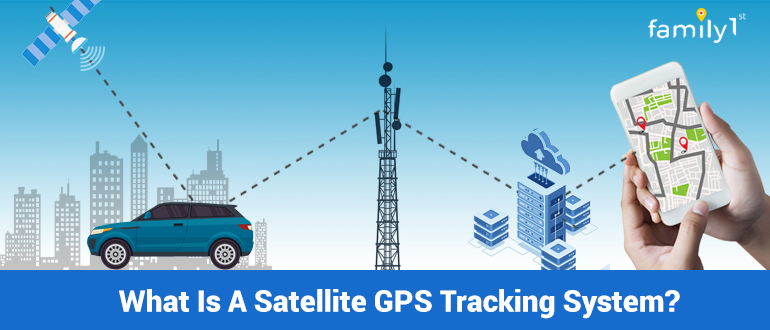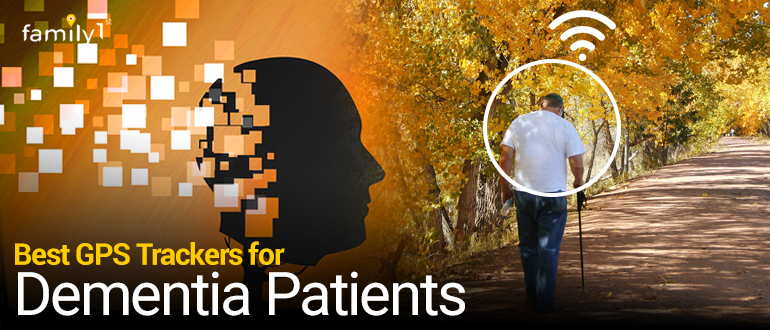GPS – a word we are sure you know. GPS has become a significant part of our life. Back in the ’80s, when GPS was made available for public use, little did we know that our lives would eventually depend on it. From tracking our food delivery, finding routes of our destination, to getting help in an emergency, we rely on GPS trackers a lot. But have you ever thought – what is the tech behind it, and how does it work?
Table of Contents
GPS- Global Positioning System
GPS stands for the global positioning system, is a satellite radio navigation system. Currently, the United States defense department owns it. It works on a range of satellite systems known as global radio navigation systems or GNSS.
Initially, the US Department of defense started GPS for military use. Later in the 1980s, it was introduced for civilian use. Since then, it has evolved and has become an integral part of our life.
Civilian application of GPS is restricted and continuously reviewed by the department of defense. The most common use of GPS is to determine the geographical location of any object on the surface of the earth.
What Is A Satellite GPS Tracking System?
GPS tracker is a navigation device that uses a global positioning system to locate vehicles, assets, and people on the earth.
There are two types of trackers based on the mode of data transmission:
Passive GPS trackers:
Passive GPS tracker or data logger stores the location data in its internal memory. Users manually retrieve the data from the device in a computer.
Active GPS trackers:
On the other hand, an active GPS tracker or data pusher transmits data at periodic intervals to a database system. How? The device either uses a modular demodulator system or a cellular network. It is also known as a real-time GPS tracker, and it is used widely for various purposes.
Common Usage Of A GPS Tracker
-
Search and Rescue
GPS trackers come in handy in finding someone or something. How? Let’s say your dog gets loose and runs away. The poor thing scared of running vehicles is crying somewhere. How will you rescue it? If you have a Pet GPS tracker attached to its collar, you can locate it.
-
Navigation
New on the town and looking for a grocery store or dentist? Find the best route for your destination with the help of a GPS tracker.
-
Vehicle Tracking
One of the most popular uses of GPS trackers is vehicle tracking. GPS devices for vehicles are the best way to protect your vehicle from possible threats such as theft, unauthorized usage, etc. Some advanced OBD and hardwired trackers also help with the regular maintenance of your car and increase fuel efficiency.
-
Asset Tracking
You can also use a GPS tracker to track your valuable possessions.
-
Tracking Loved Ones
People also use GPS trackers to protect their loved ones. For example, parents use Child GPS trackers to track their school-going kids or monitor their new teen driver’s driving skills.
How Do GPS Trackers Work?
Back then, our ancestors used to watch constellations to determine their location. But was it accurate? No, and what will they do on a cloudy day?
But now, GPS trackers have been introduced in the market. You can determine location, time, and velocity accurately.
Let us uncover the secret behind this magic.
The GPS works in three parts: satellites, ground stations, and receivers.
Satellites orbiting around the earth revolve at a determined place at a particular time. Ground stations update the receivers as it changes their position. At last, the receiver in the GPS trackers interprets the signal to determine how far it is from the satellite. It uses three different satellites to locate the target object accurately.
Let’s dive into more detail.
Today there are several satellites in space. Today there are 32 satellites. Out of which 24 are core, and the rest eight are emergency.
These satellites need continuous maintenance and face constant danger. And hence, the average lifestyle of the satellite is ten years. But it can even be reduced if it faces threats.
The receivers of the GPS trackers receive satellite signals to determine the location, time, and velocity of the object.
But there is one condition it should fulfill. What?
A receiver checks the location with at least four satellites to determine its accurate location. Why? It uses a trilateration mechanism, which we will discuss in detail now.
Trilateration Mechanism
Trilateration is the process of calculating your distance from the satellites orbiting around the earth.
-
2-D Trilateration
First, let us understand 2-D trilateration with the help of an example. Let’s say you are walking from your home to point X. After walking for more than three hours, suppose you want to know your exact location. According to the first satellite A, you are 3 miles away from it. But it is difficult for you to determine your location.
So the second satellite sends you a signal. Now you get to know that you are four miles away from satellite B. If you calculate both information, you will find two possibilities of where you can be.
Now, the third satellite comes into action. It sends you a signal that you are 5 miles away from it.
Finally, you can determine your location accurately.
-
3-D Trilateration
The 3-D trilateration is the same as the 2-D one with one difference. The receiver will determine latitude, longitude, and altitude.
It is similar to the 2-D one with one difference. Here the fourth satellite comes into play. The fourth satellite helps you to determine the accurate location.
Final Words
GPS trackers are one of the most relevant inventions of science. They are versatile and powerful devices that can help you with different aspects of your life. Family1st GPS solutions also rely on satellite GPS information to track valuable assets and loved ones. We offer portable and OBD trackers that are effective and provide a real-time and accurate location. While our OBD or plug-n-play trackers are exclusively used to track cars, get driving reports, schedule regular check-ups, and save fuel, our portable trackers are versatile.
With our portable GPS trackers, you can track cars, assets, kids, teens, elderly family members, and pets. The tracking device comes with a companion app that you can download on any Android or iOS device and set preferences for geofence and alerts. The tracker also comes with a 4G connectivity offering coverage in the US, Canada, and Mexico. You can also integrate it with Alexa for superior and convenient usage.
Here are some key highlights of the Family1st Portable GPS tracker:
- Cost-effective device
- Low monthly subscription cost
- Best for personal tracking
- Handy and doesn’t require any installation
- Great customer support
- Good battery life
- Real-time tracking and alerts
For more information on the device, you can get in touch with us here.









Next
Previous